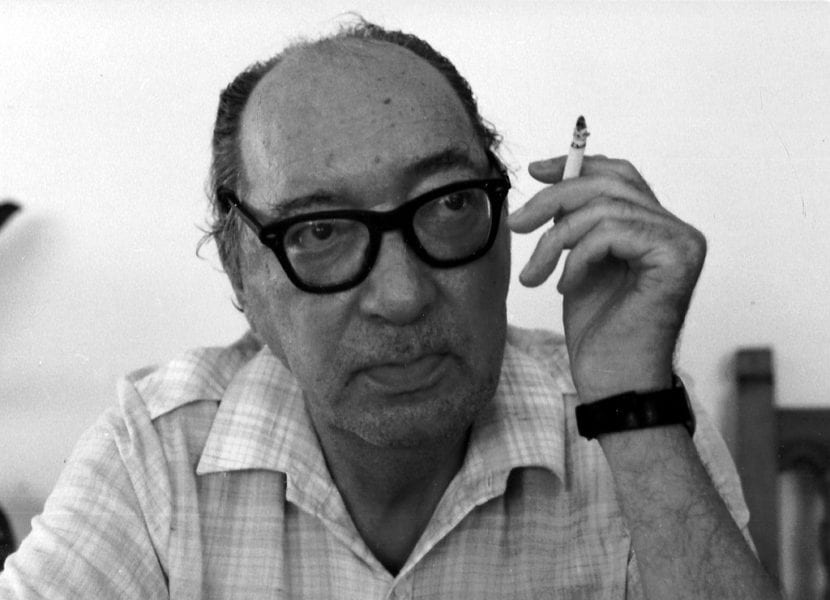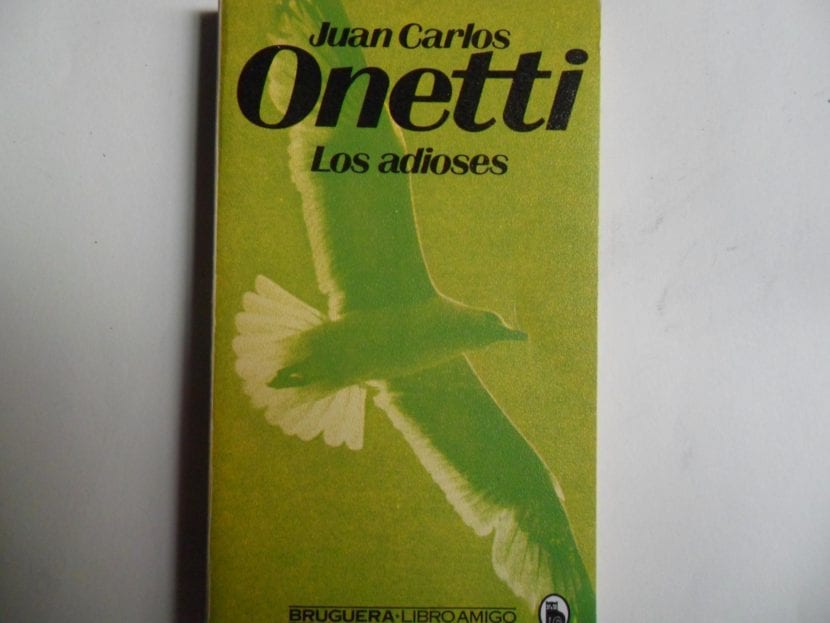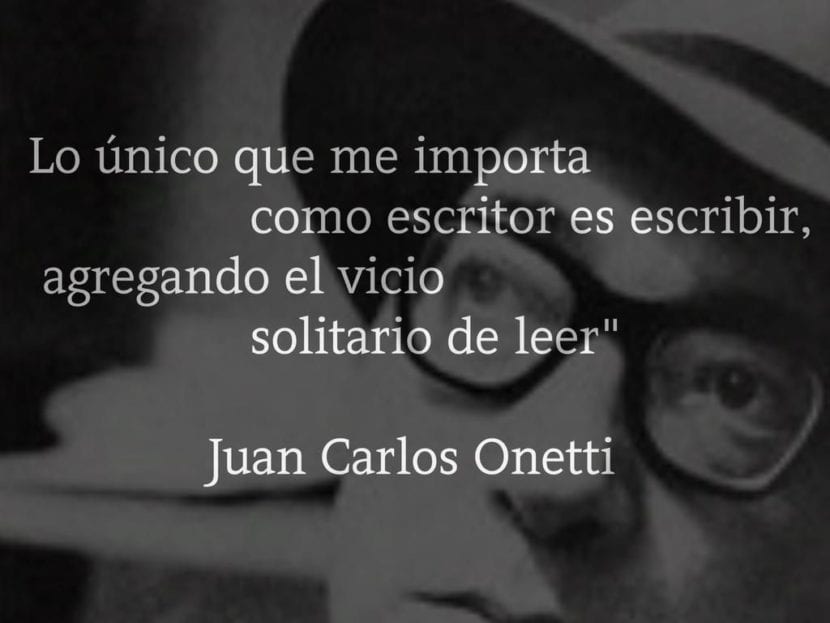
The Uruguayan writer Juan Carlos Onetti.
Juan Carlos Onetti Borges (1909-1994) was a Uruguayan-born writer who produced stories of an existential, hopeless and very personal nature. The writer created a fictional world that he used in his works, inspired by Wiliam Faulkner, an author who used to produce stories with this quality.
Mario Vargas Llosa affirms that the writer did not obtain due recognition for his excellent work. Their stories introduced the reader to a pessimistic and sad reality through very elaborate, engaging and compelling language. It is considered as one of the great masters of recent Latin American narrative.
Biography
Birth and family
Juan Carlos Onetti He was born on July 1, 1909 in Montevideo, his parents were Honoria Borges and Carlos Onetti. He was the second of three children, a girl younger than him named Raquel, and Raúl, his older brother.
The surname Onetti used to be "O'Nety", it is believed that it comes from Scotland or Ireland. What happened was that the father of the writer's great-grandfather, a man born in a British overseas territory called Gibraltar, made the decision to Latinize the surname by changing its spelling.
Training
Onetti He completed his basic and secondary studies without incident, however, due to a general strike in 1929, he put aside his training in law. After that he dedicated himself to various trades to survive, including that of editor in various publications, such as the magazine Scissors. With his effort he managed to become independent at 20 years of age.

Los adioses, a book by Juan Carlos Onetti.
Love life
In 1930 he married Amalia, his paternal cousin. She accompanied him to Buenos Aires, where the author began selling adding machines, and was also a film critic. The spouses had a son named Jorge and two years later in 1933 the couple separated and Juan Carlos returned to his hometown, Montevideo.
Onetti fell in love with his ex-wife's sister, María Julia. They married and soon after they separated. The author remarried in 1945 to a woman named Elizabeth Pekelharing, and the same year in which he inaugurated the stories of Santa María his daughter Isabel María was born, specifically on July 26, 1949.
Onetti boom
His rise to public recognition began with the creation of a fictional city called Santa María., which was the setting for many of his stories. The first work in which this place appeared was The house on the sand and then in 1950 in The short life.
He married again with a woman who would accompany him for the rest of his life, Dorothea Muhr. In the sixties he began to receive awards for his publications; in 1962 he obtained the National Prize for Literature and four years later, in Venezuela, the Rómulo Gallegos Prize. And is that his books are a trip around the world for lovers of reading.
Boom of Hispanic American Literature
At that time Juan Carlos published The shipyard, work that positioned him in the first place of the "boom" of literature Hispanic. This category screened authors not so recognized (or well recognized only in their countries) to international bodies.
Last years and death
In 1981 Onetti lived in Madrid for a time and there he found out that he had won the Cervantes Prize. After receiving the most important recognition of his literary life, he was invited to witness the reestablishment of democracy in Uruguay, however he decided to stay in Spain.
In the last years of his life, many journalists and authors visited him at his home, since Juan Carlos hardly left there. In 1993 he wrote again about the city of Santa María, published When it no longer matters; a year later he became ill with hepatitis and Onetti died on May 30, 1994 in Madrid of a myocardial infarction.

Quote by Juan Carlos Onetti.
Works
Novels
- El pozo (1939)
- The short life (1950)
- For a nameless grave1959).
- The shipyard (1961).
- Let's stop talking to the wind (1979)
- When it no longer matters (1993)
Tales
- Hell so feared and other tales (1962)
- Jacob and the other. A dream come true and other stories (1964)
- The Stolen Bride and Other Stories (1968)
- Time to embrace and the stories from 1933 to 1950 (1974)
- Secret tales. Parakeet the Water-bearer and other masks. (1986)
- Presence and other stories (1986)
- Complete works III. Stories, articles and miscellany (Posthumous edition, 2009).